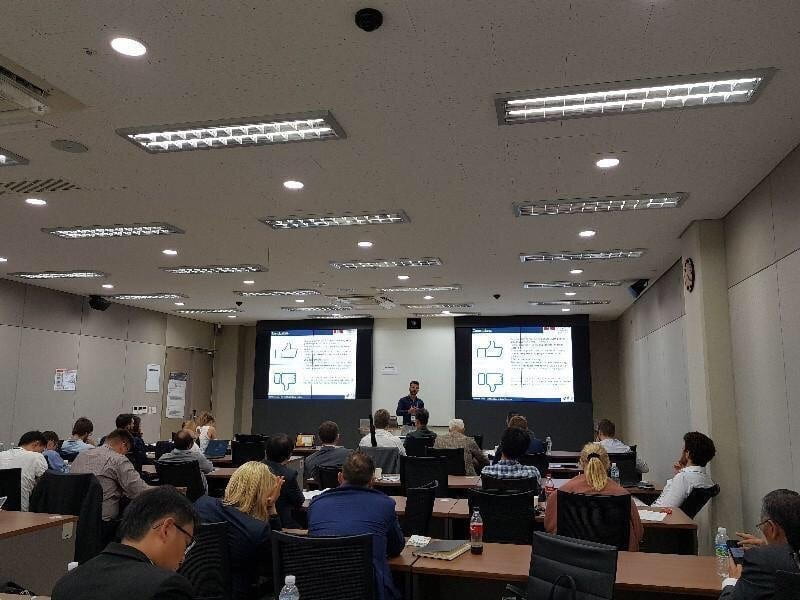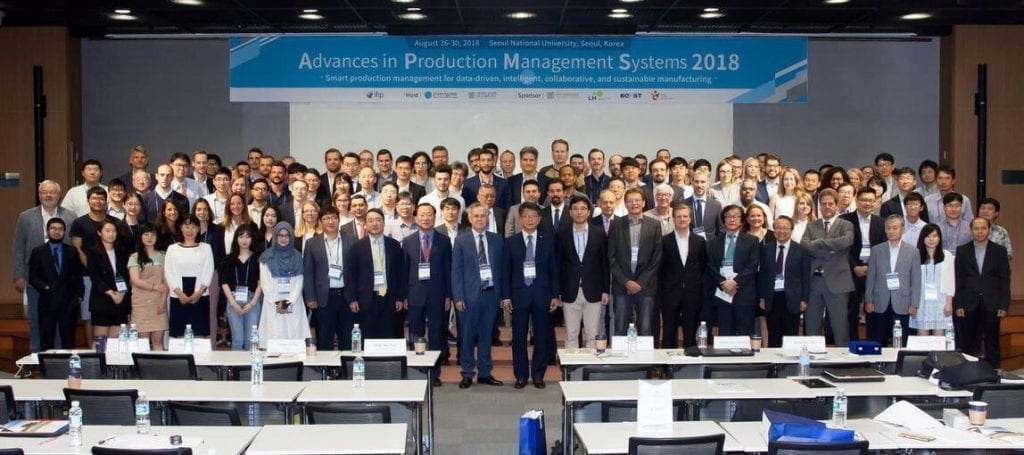The paper titled “Skill Modeling for Digital Factories” was presented in the Industry 4.0- Digital Twin session at APMS conference in Seoul, South Korea in August 2018. The presenter was Damiano Arena from EPFL, Switzerland, who was also the lead author on this paper.
Abstract:
In the past two decades, the use of ontologies has been proven to be an effective tool for enriching existing information systems in the digital data modelling domain and exploiting those assets for semantic interoperability. Despite the presence of many databases for industrial skills and professions, a formal representation, namely, an ontology, which meets the requirements of an existing tool for skill and capability analysis called CaMDiF is missing. In this research, the MSDL ontology used by the former tool in its initial version is extended by importing modules of two well-known ontologies (BFO and Agent Ontology) and by developing a new ontology for industry skills and profession based on an existing non-ontological resource (O*NET). As a result, an overview of the enriched data structure in provided along with some discussions on two use cases related to skill analysis enabled by the new CaMDiF’s modelling features



